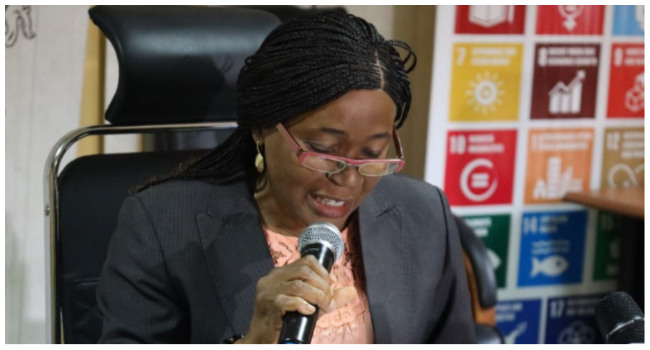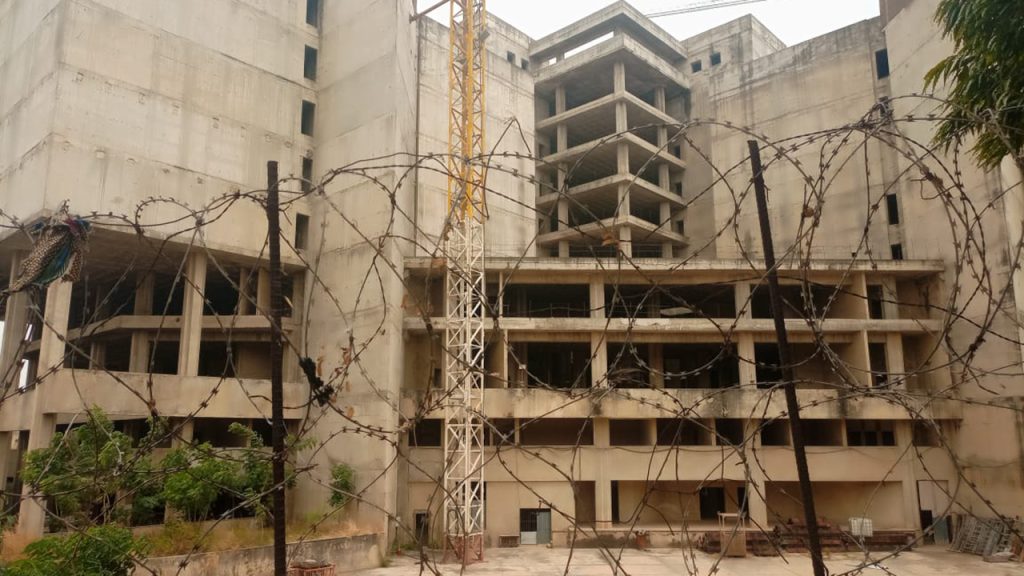By Alade Adisa
Many Nigerians who attended primary and secondary schools up until the 1990s would not deny that they made use of a library in one way or another, whether in their schools or at public libraries run by the government. Now, that era feels like a distant memory, as libraries have disappeared from most schools, and the few public ones that still exist are in a state of disrepair. Some of the remaining public libraries merely offer seats and shelves stocked with a handful of outdated books.
“Readers are leaders,” as the saying goes, but with the country’s current economic challenges, many parents and guardians cannot afford the necessary textbooks for their children and wards. Therefore, the establishment of libraries by the government for public use is not beyond what citizens expect. This underscores the importance of public libraries. Since education falls under the Concurrent List in the Constitution of the Federal Republic of Nigeria, all tiers of government are permitted to set up libraries for public use.
History of National Library of Nigeria
The National Library of Nigeria began operations in the mid-1960s following the enactment of the National Library Act of 1964, later replaced by Act No. 29 of 1970. Before the Act’s passage, a series of educational conferences held in Ibadan laid the intellectual foundation for creating a network of libraries funded by the federal government to make educational materials more accessible to Nigerians.
An advisory committee was subsequently established to explore the need for a national repository of knowledge. The committee was tasked with helping the government highlight the intellectual foundations of its policies, establishing a national bibliographic centre, and creating a platform for knowledge promotion. It became the first major body to recommend the creation of a National Library. The government accepted the recommendation and took steps to establish the library, which was initially sited in Lagos, the then capital of Nigeria.
New National Library palaver in Abuja
Following the relocation of the capital to Abuja, the government decided in 1981 to construct a new National Library there. The contract was awarded to Reynolds Construction Company in 2006 at a cost of N8 billion. This amount was later revised to N34 billion, and by the time the Muhammadu Buhari administration left office two years ago, the project cost had ballooned to N100 billion.
The National Library project, which began in 2006 and was initially scheduled for completion in 2008, has faced numerous setbacks. Construction was halted in 2012, and the structure has remained abandoned for years.
State of affairs
Though President Buhari, before leaving office, directed the Tertiary Education Trust Fund (TETFund) to step in and complete the project, no progress was made. The Fund is already overwhelmed with responsibilities, seemingly biting off more than it can chew.
In March this year, President Bola Tinubu reiterated the directive, mandating the Fund to support the project’s completion. The Minister of Education, Dr. Tunji Alausa, also assured that TETFund had earmarked a portion of its budget to resume work on the site.
During his visit, Alausa reaffirmed President Tinubu’s commitment to completing the long-overdue project, which many stakeholders have described as a “national embarrassment.”
“We had three national monuments planned for the Federal Capital Territory: the National Mosque, the National Ecumenical Centre, and the National Library. The mosque and ecumenical centre were completed decades ago, yet the National Library remains unfinished,” Alausa stated.
To ensure steady progress, he announced that the project would be completed in phases, starting with Basement Levels 1 and 2, Ground Floor, First Floor, Second Floor, and the Perimeter and Aesthetic Works.
“We have spoken to the consultants and contractors, and they have a deadline to return to the site on or before June 2025,” Alausa assured.
Staffing Needs
The Chief Executive Officer of the National Library of Nigeria, Prof. Chinwe Veronica Anunobi, while commending the efforts to complete the building, raised concerns about staffing.
The national librarian explained that while the library operated with 2,001 staff in 2013, the number had since reduced by 500, a development she said was affecting operations.
In addition, Prof. Anunobi lamented poor funding, saying it was difficult to procure essential materials needed for 21st-century library services.

Speaking in a chat, she said that the original mindset behind the library’s creation was simply: “…just to collect and preserve materials and believing that people will just come and read, “but with the new assets and new methods of looking for resources, the National Library has changed with its new strategic goal.”
Expressing concern about the reduced workforce, she added: “Let them rejuvenate the staff by at least 500, and then we will take it from there. We moved from 1,000 to 590, so if you give me back the 500, then I will now begin to work with it. Can you have a library and only one staff member there? Is it possible?”
“We were opening branches because that is the mandate of the National Library—that we should open branches all over the country, that every state should have a branch. We had 24 branches before, and we moved to 33, still managing with the little staff we have,” she said.
Modern resources and facilities
Prof. Anunobi also stressed the need for modern resources and facilities in the library.
“We have not been able to acquire the electronic resources that we should acquire, like journals for the Nigerian public in the areas of reading, learning, and research.
Because we are serving not only the low level of the educated but also the high level of educated public.
We don’t have the money to acquire electronic and data resources—they are very expensive.
We tried to approach TETFund, but they said it’s not within their mandate.”
“We want to acquire these resources, like the e-Library USA, which acquired these resources and subscribed for the general public. We don’t even have the money to acquire these resources,” she said.
Call for engaging professional librarians
Regarding staffing leadership in libraries nationwide, the Nigerian Library Association (NLA) stated that governments at various levels had not appointed professional librarians to head libraries in the past 30 years.
The President/Chairman of the Council of the NLA, Pastor Dominic Amenaghawon, therefore called on federal and state governments, as well as employers and regulators in the education sector, to act urgently to correct the situation.
“It is imperative that leadership positions in libraries be rightfully filled by qualified and certified librarians who possess the requisite knowledge, skills, and commitment to advance the field of librarianship in Nigeria.
The federal government should, through the office of the Head of Service of the Federation, grant employment waivers for professional librarians in the Federal Civil Service. State governments should also do the same.”
“It will amaze Nigerians to know that despite the embargo on employment by the Federal Government, special waivers have been given to some MDAs to employ staff to fill vacancies arising from retirement and job migration. But the Head of Service of the Federation has not seen the need to give waivers for the employment of librarians in the Federal Civil Service.”
“It may interest you to know that the school library system in Nigeria has collapsed.
We do not have librarians manning the school libraries anymore because there is no replacement for retiring and promoted librarians in the school system,” he added. “The public library system is the university of the ordinary Nigerian, but the story today is appalling and a shame to the elite of this country.
It is time to review the laws and ensure standardisation of the public library system in Nigeria.”
“Another area of neglect is the parliamentary libraries at the national and state assembly levels.
Permit me to state here that a reading society is a leading society, and Nigeria should not be found wanting in the promotion of readership and literacy for all.”
“The National Universities Commission, National Board for Technical Education, and the National Commission for Colleges of Education should call institutions under their purview to order and ensure they engage librarians as part of their accreditation and resource verification teams, to help address these anomalies,” he said.



